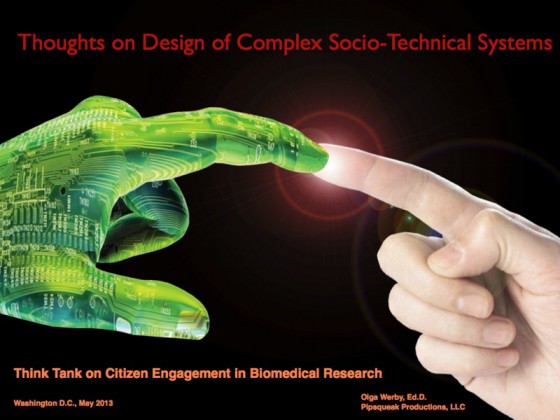
I’m about to leave for Washington D.C. for a Think Tank on Citizen Engagement in Biomedical Research. I have only five minutes to talk during the introductory speed geeking event, where all of us get to know about each other and each other’s projects. I’m going there to talk about our lessons learned from designing complex socio-technical systems that required intense participation from their users. I’ve been working on designing such systems for many years now. Some projects were/are very successful, some not so much. I’m not sure I will be able to give a full account of what we’ve learned, so I’m putting up a long(ish) version of my presentation here — if I had 15 minutes, this is what I would say to our very interesting group of participants. I chose these four complex socio-technical systems because all of them were in some measure educational ventures and all required outside users to contribute large amounts of data. I will start with Ushahidi. Ushahidi was born during the 2007 Kenyan election. That election was bloody and the violence, in many cases perpetrated by the government, was not being reported. Ushahidi was a grass-roots effort to tell their countrymen and…
